This indoor farmer markets sustainability
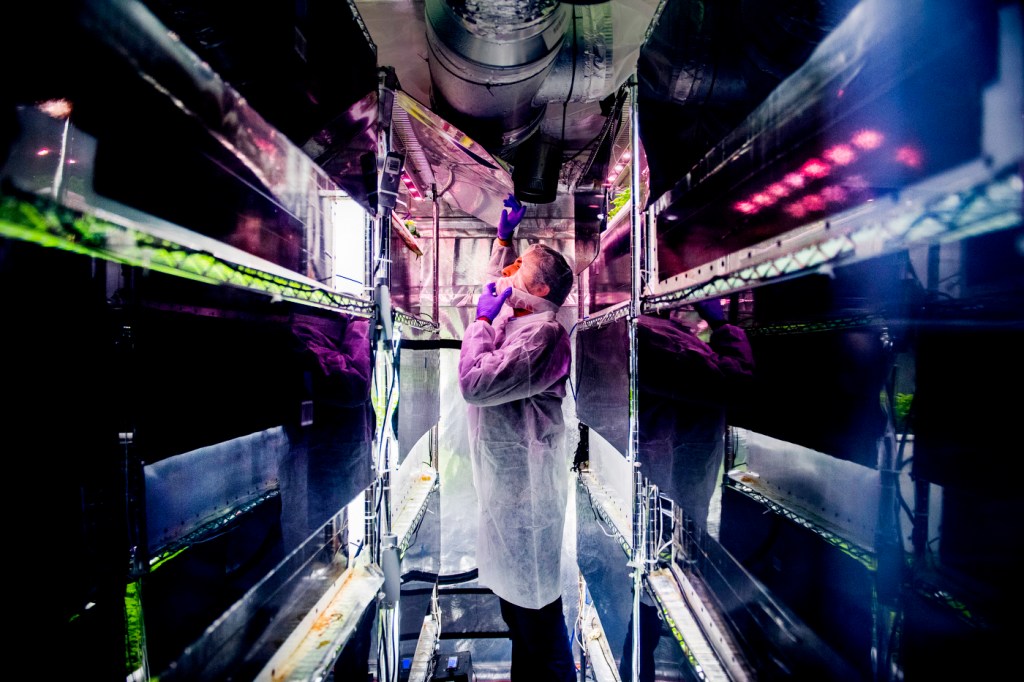
Ahmad Zameli returned to his Cambridge apartment with excitement. It was like any other day, except that he was finally going to reap what he had sown months before… literally.
He walked into his small, 10-by-10-foot bedroom, and looked into the makeshift growing chamber that occupied his bedroom. Inside, underneath the purple glow of a fluorescent light, sat a ripe head of lettuce.
“That first head of lettuce I harvested, honestly, tasted like crap,” laughs Zameli, recalling that day back in 2016.
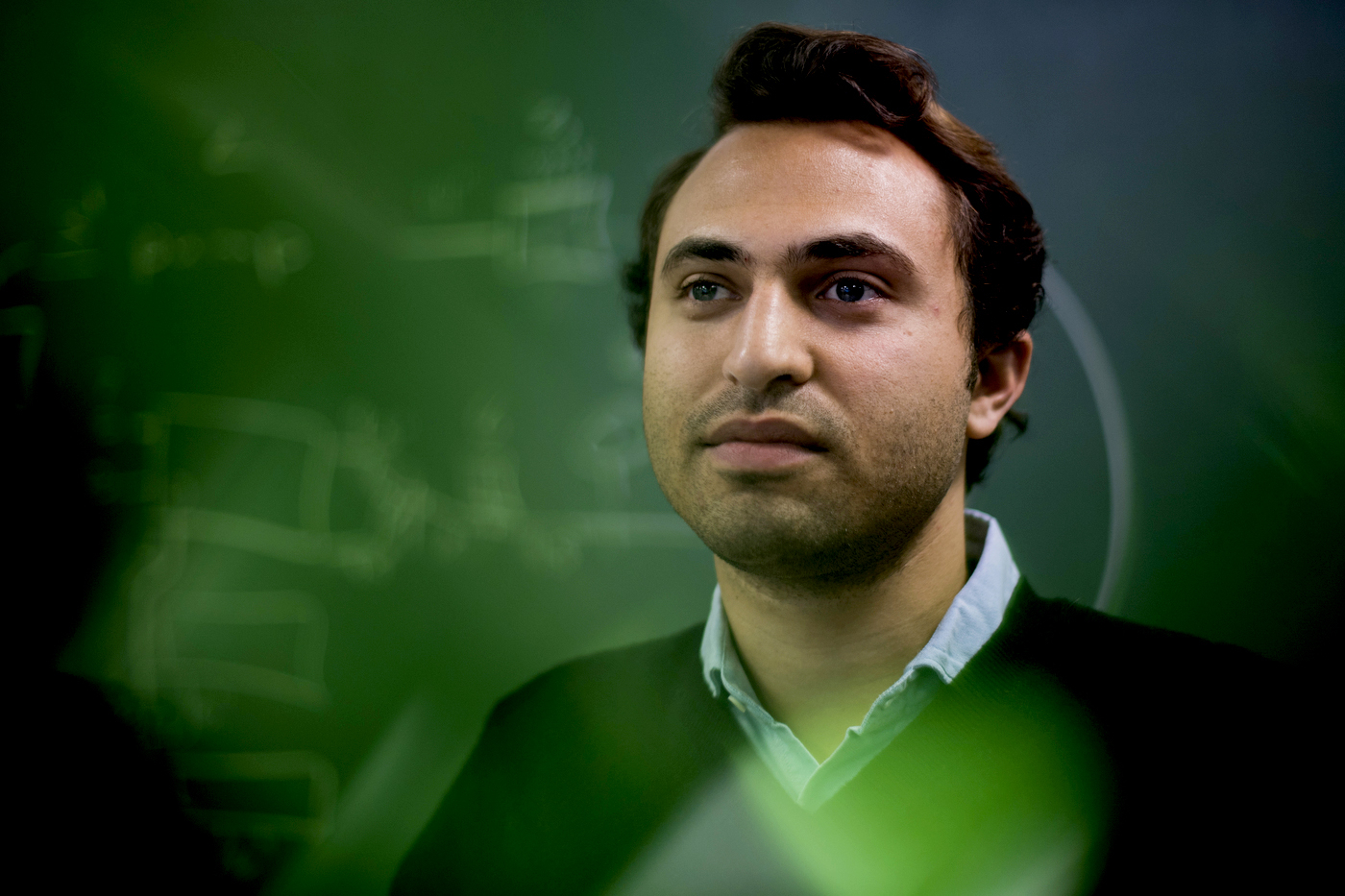
Zameli, who graduated from Northeastern in 2014, quit his job as an industrial engineer in 2016 to start Evergreens Farms. “I thought, ‘There’s not going to be another opportunity like this. I’m young. I can survive off just a bowl of ramen,’” he recalls. Photo by Matthew Modoono/Northeastern University
Despite its taste, it was something tangible, and that mattered to Zameli, who graduated from Northeastern in 2014 with a bachelor’s degree in industrial engineering. He had an interest in agriculture that dated back to his childhood in Saudi Arabia. He often thought about what it took for the greens in a salad to reach consumers from farms.
A few months after he sampled that foul-tasting head of indoor lettuce, Zameli quit his job as an industrial engineer, and set out on a venture to bring farming technology indoors to grow food that actually tastes good. He called the company Evergreens Farms.
“I thought, ‘There’s not going to be another opportunity like this. I’m young. I can survive off just a bowl of ramen,’” recalls Zameli. “So, I quit my job.”
Four years later, Zameli leads a team of four at a facility on Northeastern’s campus in Burlington, Massachusetts, where they’ve created three large indoor farms of varying sizes that, he says, can produce “300 times more than the yield per square foot of a normal farm.”
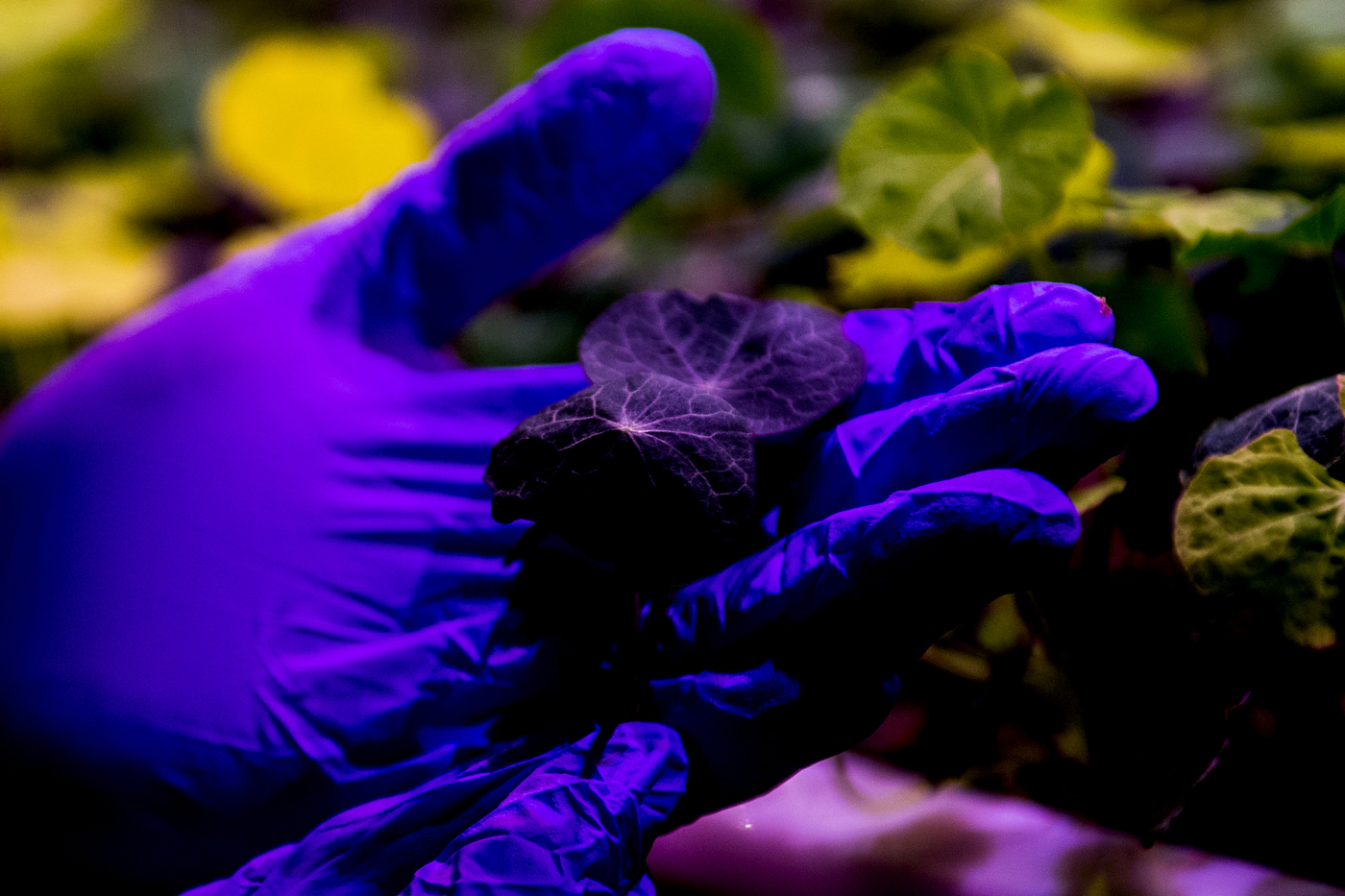
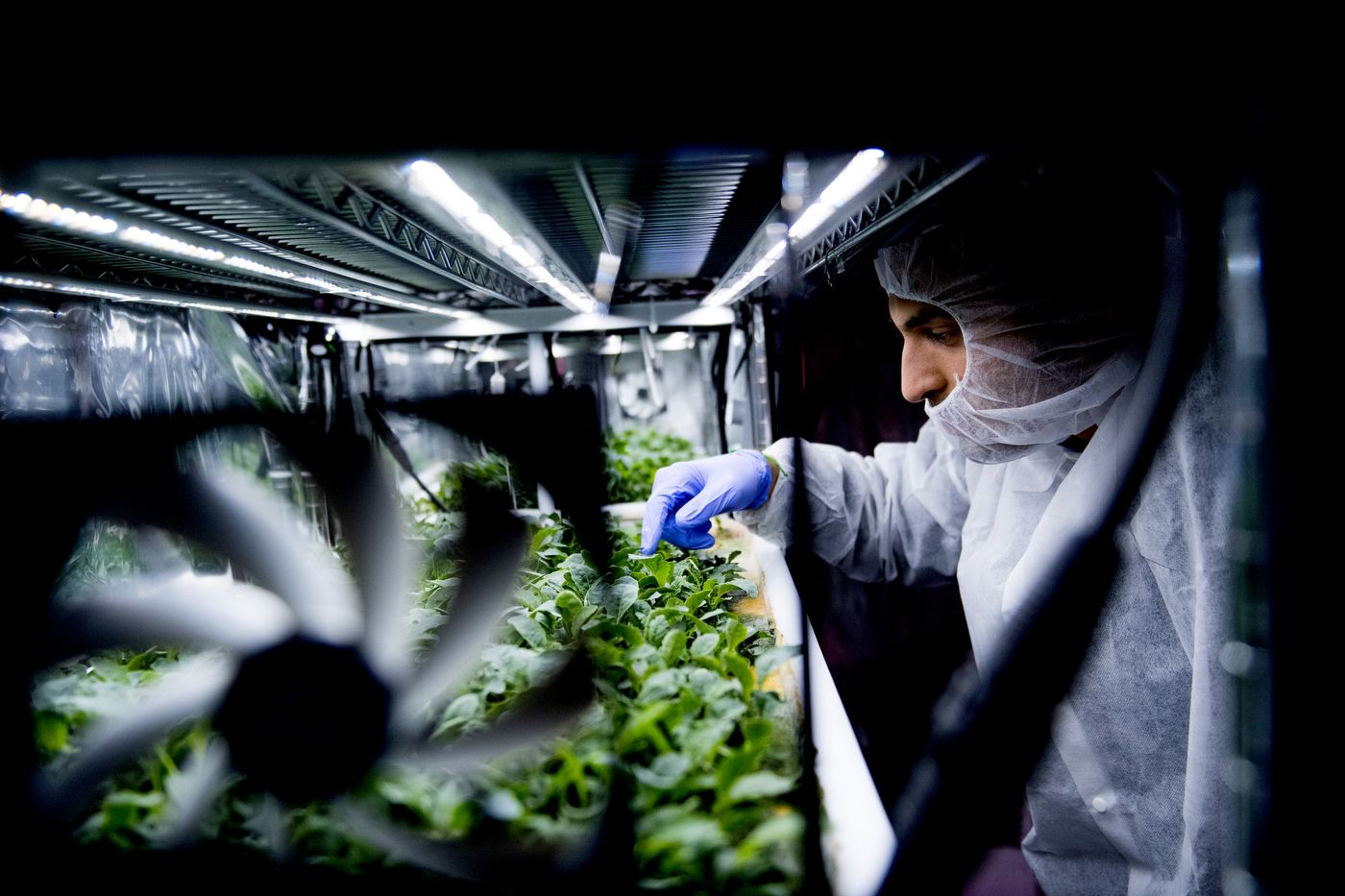
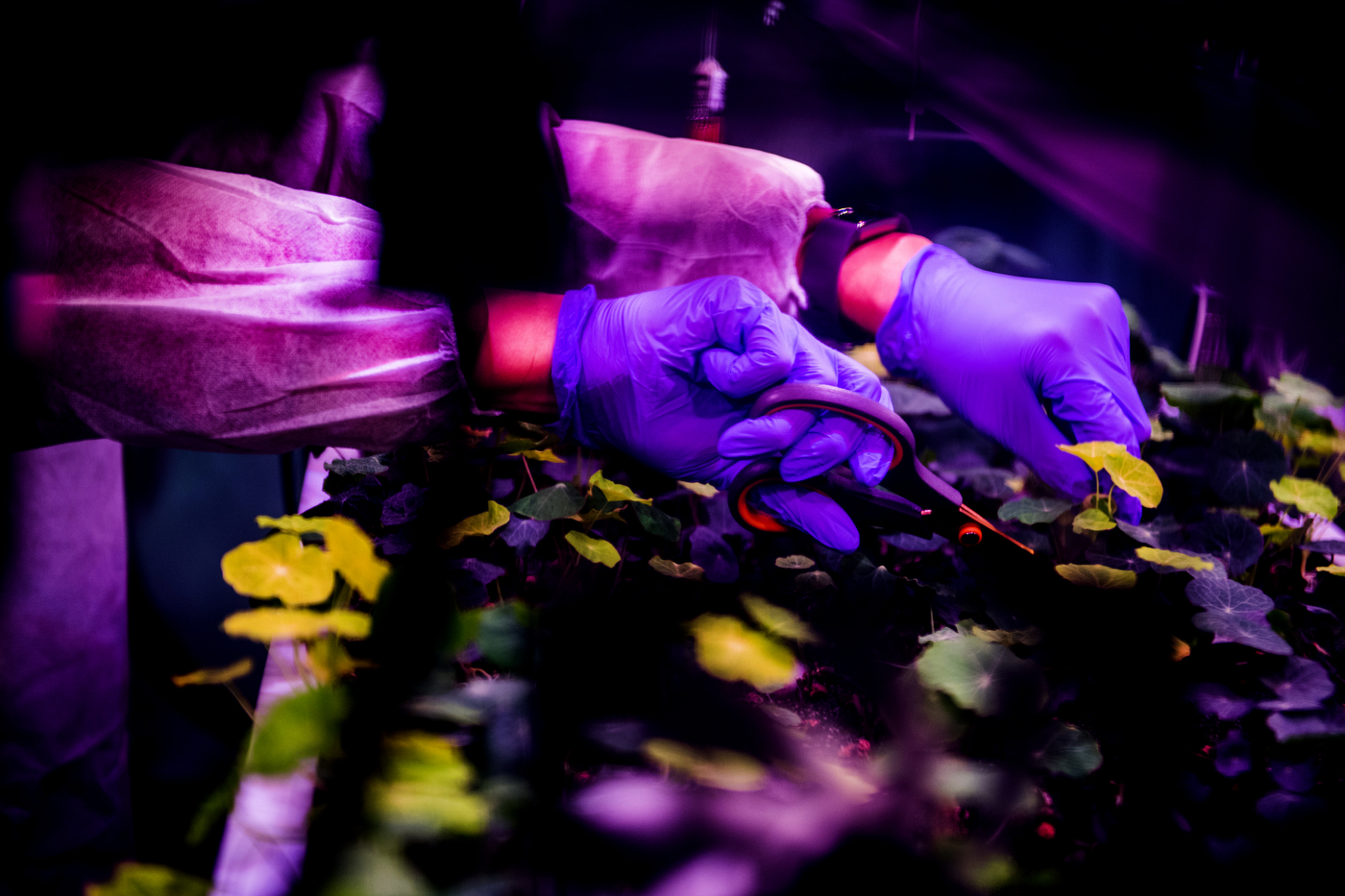
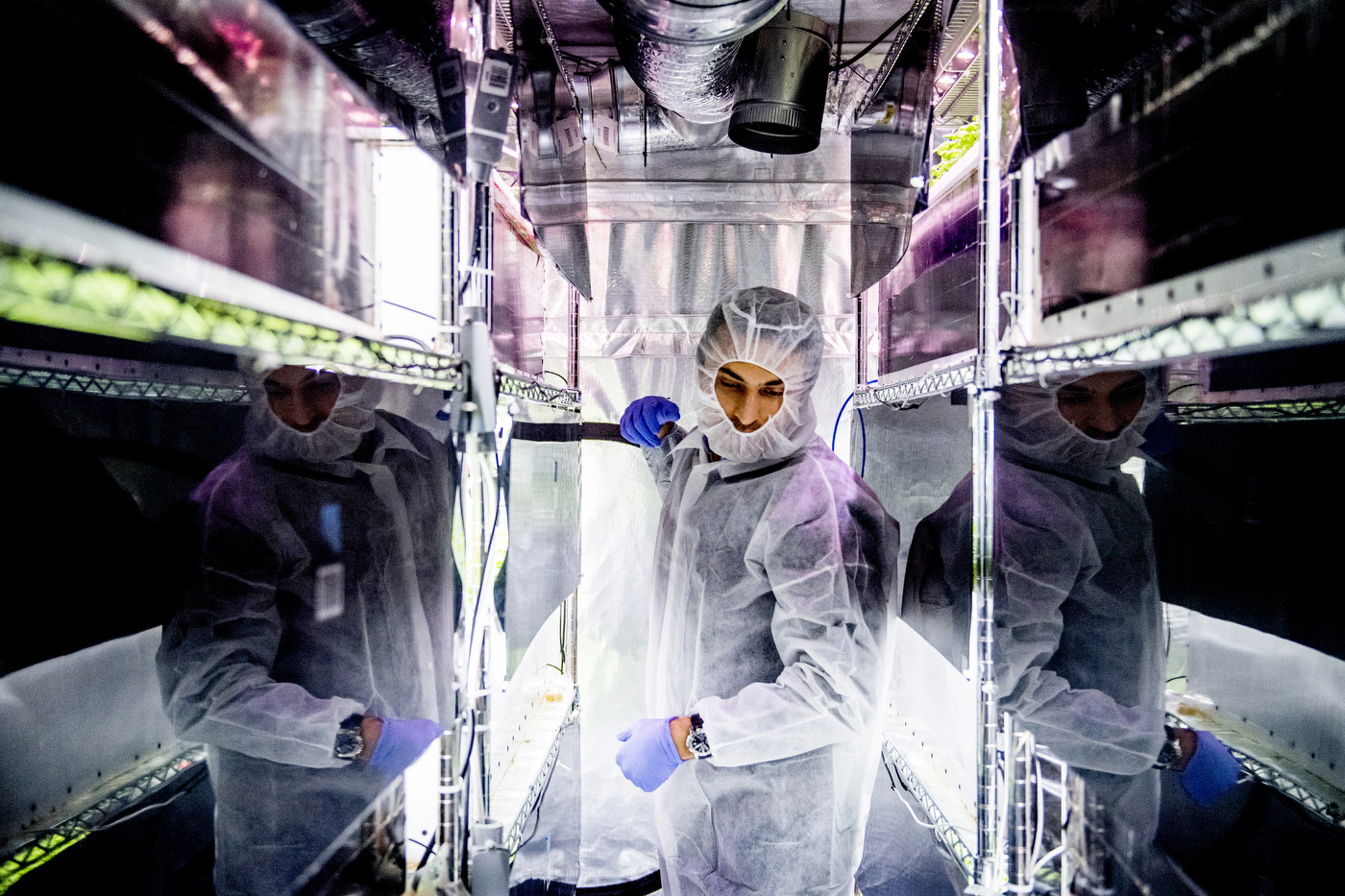
From the outside, the farms resemble giant black cubes. Inside each one stand rows of shelves on either side that contain the different greens. The plants are grown in a stacked manner, side-by-side or on top of one another, which is why Zameli refers to the stacks as “towers.”
Each seed is planted into a material that is not soil, but is comprised of the elements—commercial secrets, Zameli says—that support it, and then put into the tower. There, the plants grow underneath LED lights, which have been calibrated to direct specific spectrums of light that are the most beneficial for each plant. Each plant is given only the amount of water that it needs, and any remaining droplets are recaptured for reuse.
The best part, Zameli says, is that the humans who set this process in motion can stay uninvolved as it takes its course.
“This is where the magic happens,” Zameli says. “With our equipment, we can control and isolate every single factor that makes a plant tick or grow. By doing that, we can study the effects of changing a factor in isolation, and how that changes the plant’s nutrition, and yield.”
Evergreens Farms grows kale, arugula, spinach, watercress, nasturtium, and a mix of brassicas, a genus of plants that include bok choy, cabbage, and mustard. Zameli says his farms can grow 100,000 pounds of produce per year.
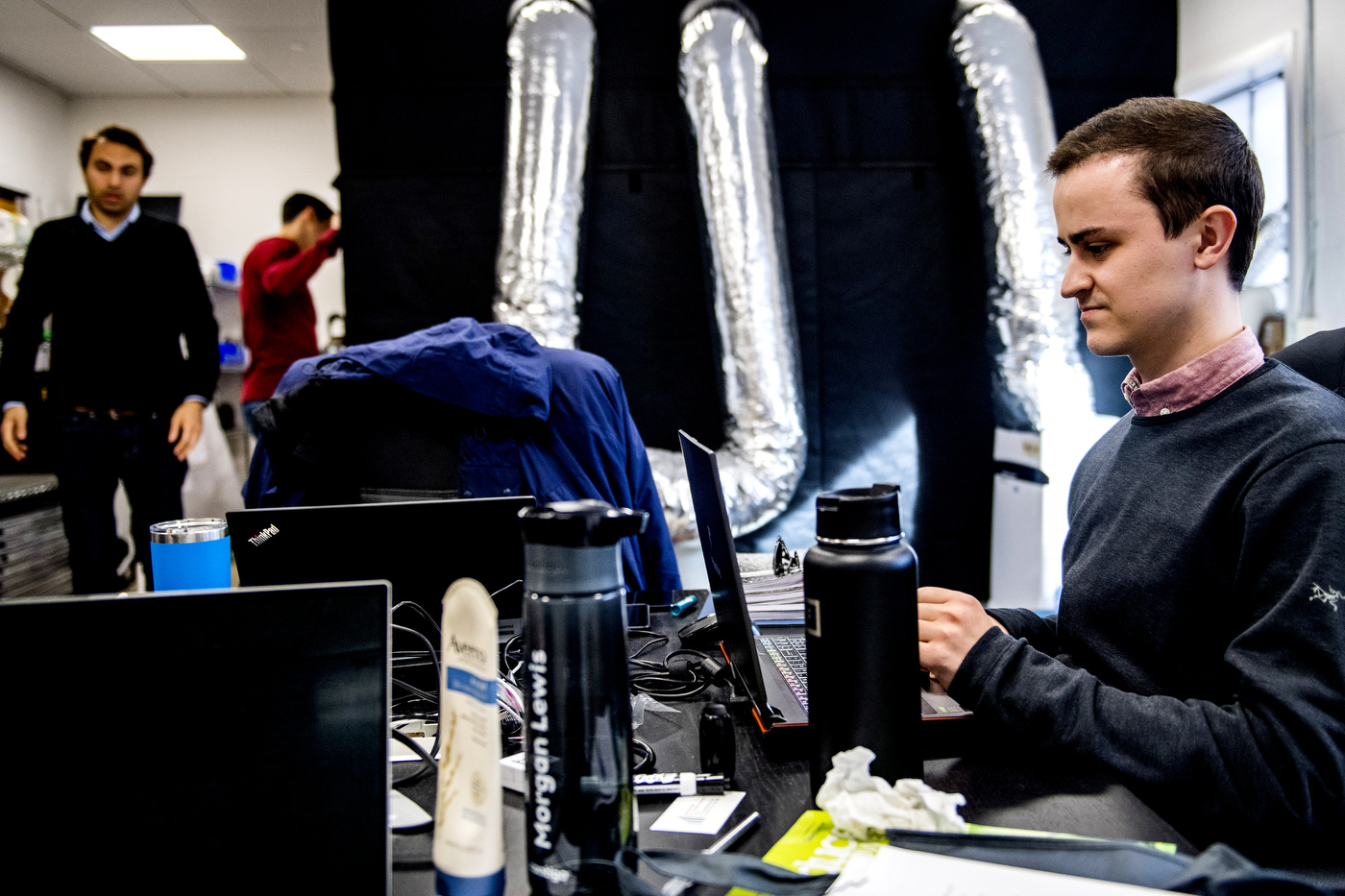
Quentin Eagan, who’s studying environmental science at Northeastern, is a part of Zameli’s team of four and works as the company’s software developer. Photo by Matthew Modoono/Northeastern University
Zameli says that deploying these compact indoor farms across different regions to sell to local businesses will eliminate the need for greens to be trucked to that region. This, and the practice of recapturing and reusing water during the growing process, will “significantly” reduce the carbon footprint that the company leaves behind, he says.
“We want to farm much closer to the consumer, so we don’t waste as much greens, and we don’t have to truck it all around the country,” Zameli says. “We also use a lot less water, like 95 percent less than that of a field farm.”
Zameli says his technology allows growers to ignore the problem that fresh foods are seasonal.
“You’re getting the same product, January through December, at the same price and quality,” he says.
Zameli says his company plans to roll out two or three farms here of varying scales in different regions of New England, and “sell the vegetables that we grow.”
Zameli credits much of his early success to Northeastern and the resources it unlocked. He is a member of the university’s Young Global Leaders program, which comprises more than 100 recent graduates who advise university leadership and help to strengthen Northeastern’s network of international alumni.
“We were given the opportunity to create our facility on the Burlington campus, and we’re in a network where we can collaborate with people who are at the top of their game in the domains they play in,” Zameli says. “We wouldn’t be here today without Northeastern. We probably would’ve still been sitting around, just talking about the Evergreens idea.”
Zameli’s journey hasn’t been a smooth ride. He vividly remembers “the high highs and the low lows,” and as a reminder, he keeps a piece of paper taped on a wall in the office he and his coworkers share. On it reads a popular Chinese proverb: “When the winds of change blow, some people build walls, others build windmills.”
“My father sent me that during a very low moment, in 2017, when I was throwing my hands and saying, ‘I’m done, I’m done, I’m done,’” Zameli says. “He printed it out and told me to remember it. Now, I just look back and laugh.”
For media inquiries, please contact media@northeastern.edu.





